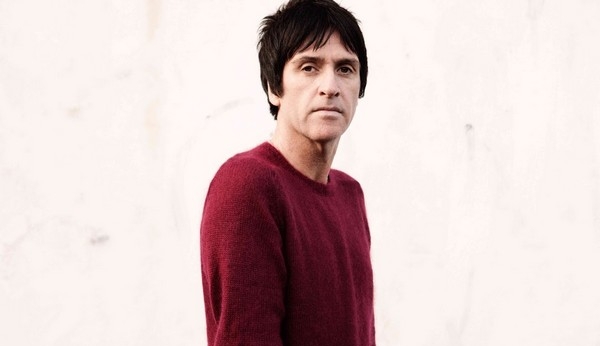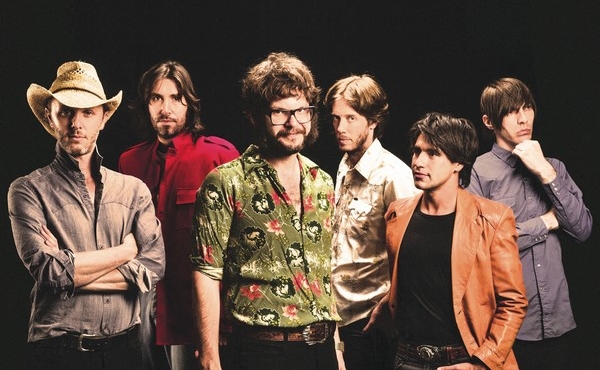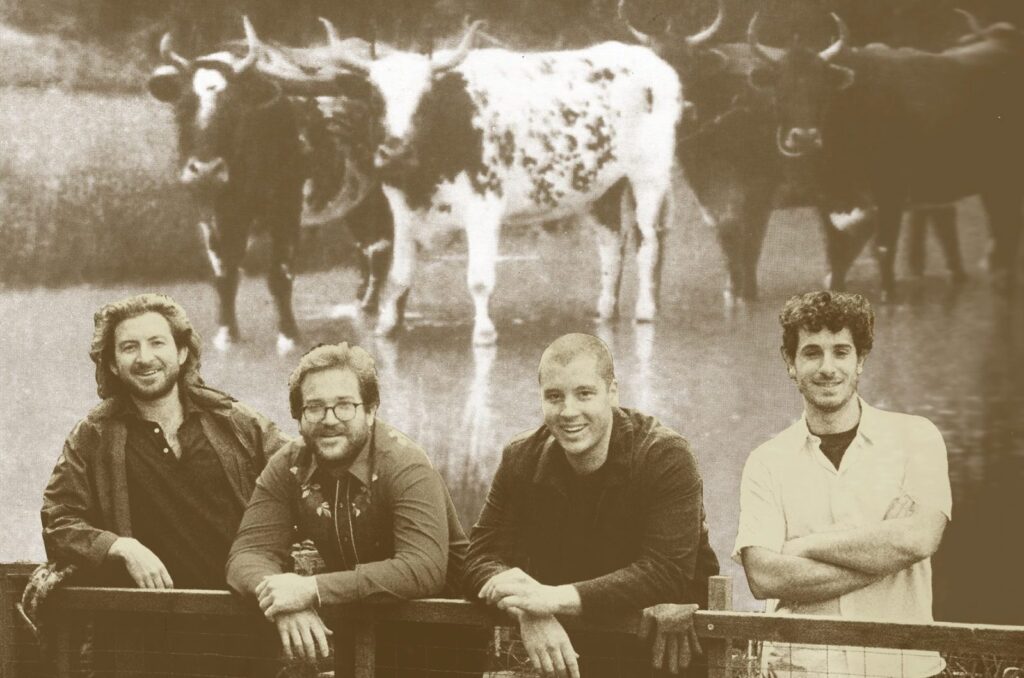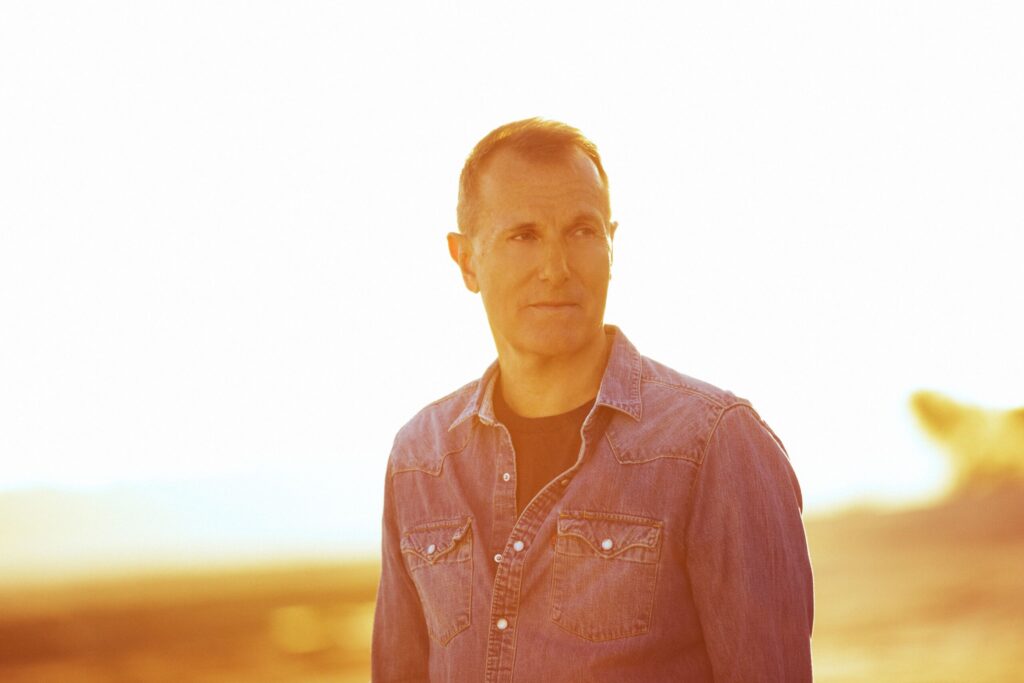Playland arrives relatively quickly after last year’s The Messenger, carrying a creative inertia from the first Johnny Marr solo album proper. “It was a continuation. Because The Messenger was received pretty well, it gave me momentum, that forward motion,” he says. “A lot of people were surprised I did one so quickly. But for me, it was a matter of, ‘Why stop?’ I was writing songs, and there was no reason to stop writing them. I thought it was a good thing to capture the spirit of the band live.”
Branching out from the rock stratosphere, Marr has explored the world of film scores in the past decade, enduring a baptism of fire with blockbuster composer Hans Zimmer on films Inception and The Amazing Spider-Man 2. “There was definitely a learning curve, I enjoyed that. Hans is a very nurturing and gracious person. He encouraged me to be as much myself as I could be. When we did Inception I was very respectful of the music that had already been laid down, and he had to keep telling me, ‘We’ve got you in to be Johnny fucking Marr. Just be Johnny fucking Marr. Stop paying attention to my chords.’ So after a few days of that I let loose a bit. He gives me a lot of freedom, and it’s very much a collaborative thing. He’s very generous, and I’ve learnt a hell of a lot from that. It’s always a surprise. Musicians who have an idea of what happens on a movie soundtrack think it’s about experimentation. It kind of is early on, but it’s more about finding an emotional point that works with the drama. Let’s put it this way, you know straight away when you’ve got it wrong with a movie, whereas you don’t on record. A record you don’t know what it means until you get a reaction from the audience. In a movie you can tell straight away if something changes the atmosphere of a scene, and I really like that. It’s not a matter of sitting down and plugging in your guitar and playing abstract stuff and hoping some of it sticks.”
While Marr has credited guitar work with a veritable hall of fame of rock legends, he spent the good part the oughts as a full-time member of indie sluggers Modest Mouse and The Cribs. “I took a lot from both those bands, professionally and personally,” he says. “Modest Mouse was such an artistic and creative situation in that all six members were very different artists in their own right. Usually in bands you have a dynamic where there’s a driven one, a poetic one, and a creative one, then one that balances out and keeps the whole thing grounded. It’s a generalisation, but that’s usually the case. But Modest Mouse is six people on their own creative paths. It was also very volatile in the best possible way. Isaac Brock makes sure that things never get too steady, on stage or off. That keeps you on your toes. That was a reminder that the stage is something to do something on, that there is that theatrical element. That was very exciting. With The Cribs, I was reminded that you never, ever phone it in. Whether it’s 200 people or 2000 people. I’ve never been in a band that walked on stage quite as cool as The Cribs. On stage or off stage as cool as The Cribs. They mean every single word, it’s life or death to them. That’s great to be around. And on a more technical level, I was singing so much in both those bands. If you’re singing with the Jarmans or Isaac Brock, your vocal has to get tough,” he reasons. “That was good.”
Recent solo tours have seen Johnny pull out a few Smiths tunes out of the hat, an act that’s far more fan service than self-indulgence. “I’ve never been a nostalgic person,” he asserts. “I don’t know how to be nostalgic. I’ve learned from the audience very quickly what those songs mean. It’s an amazing thing. On the one hand, it’s as simple as being a musician that’s been lucky enough to have written songs people love so much, then why not play them? Because it is a privilege, and it’s a great thing. It’s partly why people go to a gig. But also its significance to people is quite humbling, and I want to facilitate that. I don’t want to sound too sterile about it, because it is very moving. People are crying sometimes, it’s an incredible thing. For me, it’s a reaffirmation of what pop music can do, and what following a band can do. I’ve always believed that, and no one can tell me otherwise, because I see it every night when I play these songs. People love bands. It’s more than just a song. It’s what it meant in their lives at that particular time.”
BY LACHLAN KANONIUK







